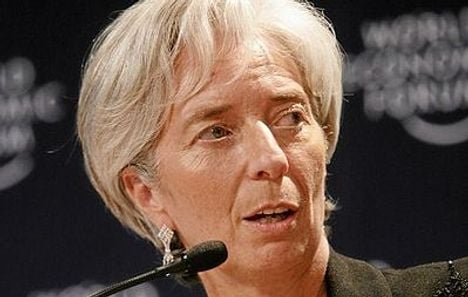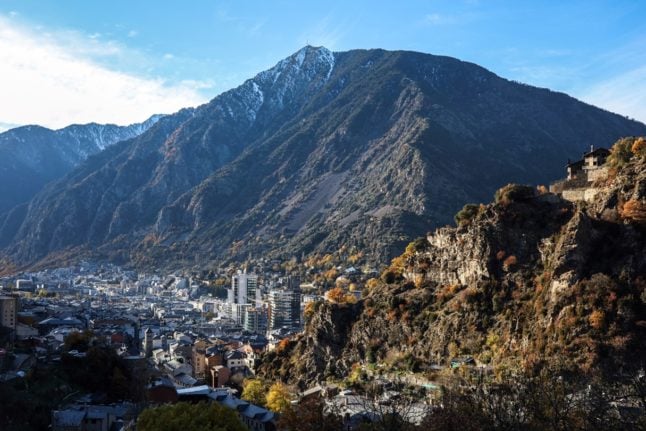The French finance minister, respected for her leadership during the financial crises that have shaken Europe over the past three years, was selected by the International Monetary Fund’s executive board to take up the five-year job from July 5.
Her victory came after the BRIC powers — Brazil, Russia, India and China– added their endorsements on top of US and European support, after efforts to construct an emerging economy bloc to challenge Europe’s 65-year lock on the job.
Lagarde replaces fellow countryman Dominique Strauss-Kahn, who resigned abruptly on May 18 after being arrested in New York for an alleged sexual assault.
French President Nicolas Sarkozy’s office declared the pick a “victory for France,” while British finance minister George Osborne welcomed the “good news for the global economy.”
Lagarde’s choice over Mexican central bank head Agustin Carstens was expected, but not assured until Washington gave her its decisive endorsement and the BRIC countries added theirs.
The 55-year-old lawyer, a divorced mother of two and finance minister since 2007, was chosen by consensus rather than a vote of the 24 IMF executive directors, the board said.
A European has held the position by tacit agreement with Washington since 1946, and Europe’s leaders were determined to have someone already deeply involved in its ongoing crises, especially Greece.
The secretive process, coming after the IMF promised transparency, drew criticism from groups pressing for more openness in the Fund.
“This travesty of an appointment process undermines the credibility of the IMF. Rumors had circulated about some openness, but before the candidates were interviewed, the decision had already been made,” said Luc Lampriere, the director of Oxfam France.
Lagarde had to earn the support of the emerging powers, where worries over eurozone stability were accompanied by concerns that she would be too focused on Europe, and unable to take a neutral stance.
She stressed she would work for the Fund’s entire membership.
“The IMF has served its 187 member countries well during the global economic and financial crisis, transforming itself in many positive ways,” she said in a statement after her nomination.
“I will make it my overriding goal that our institution continues to serve its entire membership with the same focus and the same spirit.”
Carstens, who failed to rally developing economies to mount any real challenge, praised Lagarde as “very capable” but added that he hoped she would strengthen IMF governance “so as to assure its legitimacy, cohesiveness and ultimately, its effectiveness.”
The Fund, which plays a crucial but often controversial role in aiding countries in financial straits, was left reeling after Strauss-Kahn resigned in the middle of tense negotiations over Greece’s massive bailout.
IMF chief since 2007, Strauss-Kahn was arrested in New York on allegations that he sexually assaulted a hotel chambermaid, allegations he denies.
Though not an economist, Lagarde has gained wide respect as France’s point-woman during its leadership of the G20 as well as in European debt talks.
She faces an immediate crisis on the job with Greece, where protesters and police battled in the streets on the eve of an expected parliamentary vote on the IMF-European Union-dictated austerity program to help the country avoid default — but also likely add to the hardship in its ravaged economy.
“If I have a message this evening about Greece, it is a call to the Greek opposition for it to join in national unity with the party which is currently in power,” Lagarde urged in an interview on France’s TF1 television.
Looking ahead, she needs to advance reforms of the global finance system to protect against systemic weaknesses coming from some of the most powerful economies, including Europe and the United States.
She also must deliver on promises of a bigger role in the IMF for the BRICs.
“India looks forward to governance and quota reforms of the Fund to reflect global economic realities,” India’s IMF director, Arvind Virmani, said in a statement endorsing Lagarde.
There were also calls for the IMF to make the process of choosing its managing director more transparent.
“She should waste no time in establishing a legitimate selection process for the next managing director that is truly based on merit,” said Mohamed El-Erian, head of the investment giant Pimco and a one-time candidate to run the Fund.



 Please whitelist us to continue reading.
Please whitelist us to continue reading.
Member comments